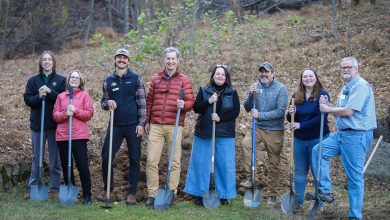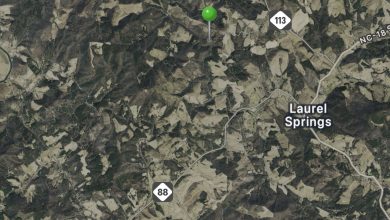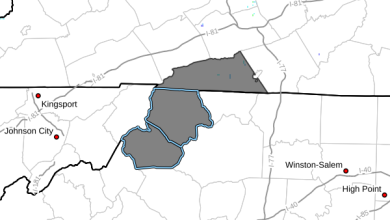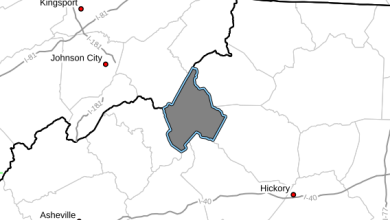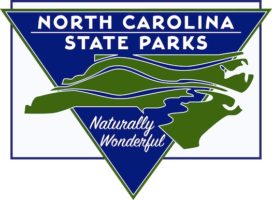
Last Updated on September 15, 2025 5:27 pm
North Carolina State Parks, part of the N.C. Department of Natural and Cultural Resources, announced that Mount Mitchell State Park has reopened as of Sept. 15, 2025, for the first time since Hurricane Helene. The park reopening is in conjunction with the Blue Ridge Parkway's announcement that it is reopening from milepost 382, in Asheville, N.C., to milepost 355.3, near the entrance to the state park.
“North Carolinians and travelers from across the country will be able to visit Mount Mitchell State Park just in time for leaf season,” said Governor Josh Stein. “I am grateful to the National Park Service and NCDOT teams for their hard work to reopen this stretch of the Blue Ridge Parkway and excited that people can continue to see what makes western North Carolina unforgettable.”
Mount Mitchell's reopening means all state parks are now at least partially open, nearly one year after Helene hit western North Carolina. For up to date information about Mount Mitchell State Park and a map of accessible roads and trails, please visit the NC State Parks website.
A reopening media event at Mount Mitchell State Park is planned for the morning of Thursday, Sept. 18. A media advisory will be sent in the coming days with additional information.
“We are very excited all of our state parks have now reopened for visitors to enjoy before the one-year milestone marking Helene,” said DNCR Secretary Pamela Cashwell. “We are grateful to our partners at the National Park Service for their hard work in repairing the Blue Ridge Parkway, and we are very proud of our staff at the state park for ensuring the park was ready to reopen as soon as access through the parkway was restored.”
Most trails within the state park boundary have reopened, except for a section of Old Mitchell Trail from the park office to its intersection with Camp Alice Trail. However, several trails in the Pisgah National Forest that connect to the park remain closed. Visitors should check with the U.S. Forest Service's website for the most up-to-date status of Pisgah trails and facilities.
The Blue Ridge Parkway remains closed from just past Mount Mitchell's entrance to milepost 334 near Little Switzerland. Visitors coming from east and north of the park will need to enter the parkway near Asheville. Travelers should be prepared and make sure they have enough fuel for a 70-mile round trip before entering the parkway, as there are no gas stations near the park.
The tent campsites and the restaurant at Mount Mitchell remain closed until further notice. The concession stand will be open on Saturdays and Sundays, and the gift shop will also open soon, pending staffing availability.
“We are eager to welcome back our visitors to enjoy the iconic views at Mount Mitchell,” said State Parks Director Brian Strong. “We ask that visitors be mindful of continued facility closures, including those within neighboring public lands. We are continuing to make repairs at Mount Mitchell as well, so please use caution on the park roads and trails. Our priority is always the safety of our visitors and staff.”
Though all state parks are now partially open, a few facilities remain closed until further notice. Visitors should check ncparks.gov prior to their visit for the most up-to-date status of parks.
About the North Carolina Division of Parks and Recreation
The Division of Parks and Recreation manages more than 264,000 acres of iconic landscape within North Carolina’s state parks, state recreation areas and state natural areas. It administers the N.C. Parks and Recreation Trust Fund, including its local grants program, as well as a state trails program, North Carolina Natural and Scenic Rivers and more, all with a mission dedicated to conservation, education, and recreation. The state parks system welcomes more than 19 million visitors annually.
About the North Carolina Department of Natural and Cultural Resources
The N.C. Department of Natural and Cultural Resources (DNCR) manages, promotes, and enhances the things that people love about North Carolina – its diverse arts and culture, rich history, and spectacular natural areas. Through its programs, the department enhances education, stimulates economic development, improves public health, expands accessibility, and strengthens community resiliency.
The department manages over 100 locations across the state, including 27 historic sites, seven history museums, two art museums, five science museums, four aquariums, 35 state parks, four recreation areas, dozens of state trails and natural areas, the North Carolina Zoo, the State Library, the State Archives, the N.C. Arts Council, the African American Heritage Commission, the American Indian Heritage Commission, the State Historic Preservation Office, the Office of State Archaeology, the Highway Historical Markers program, the N.C. Land and Water Fund, and the Natural Heritage Program. For more information, please visit www.dncr.nc.gov.










